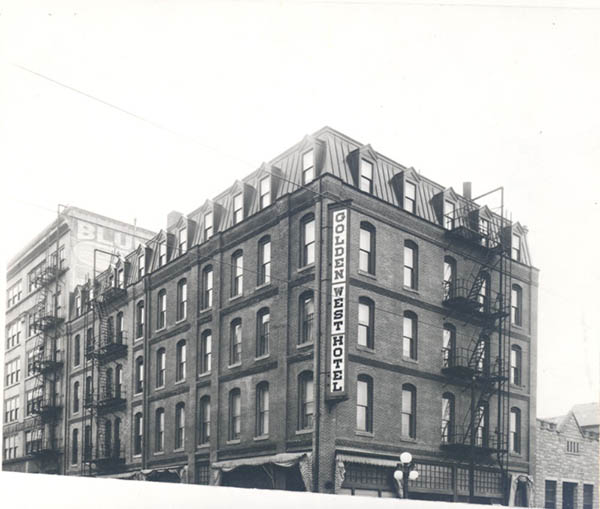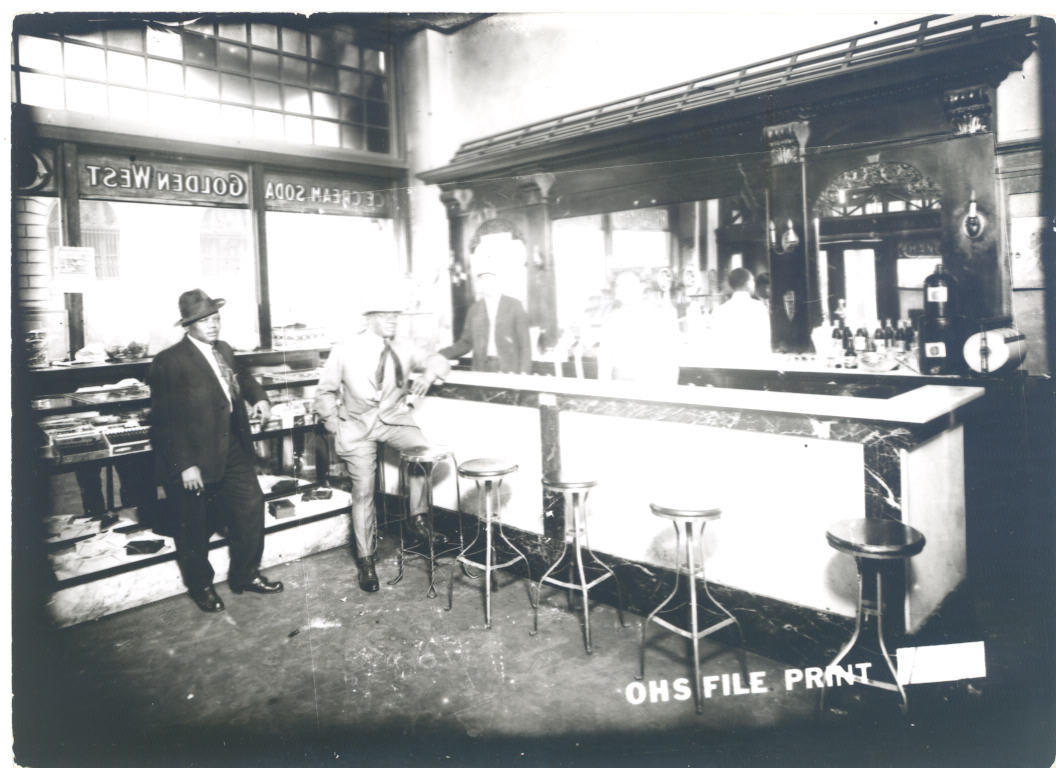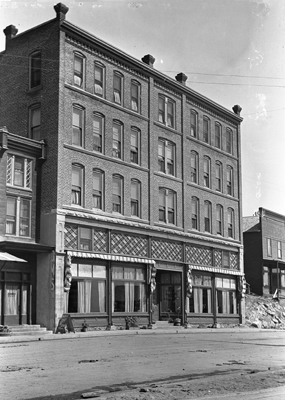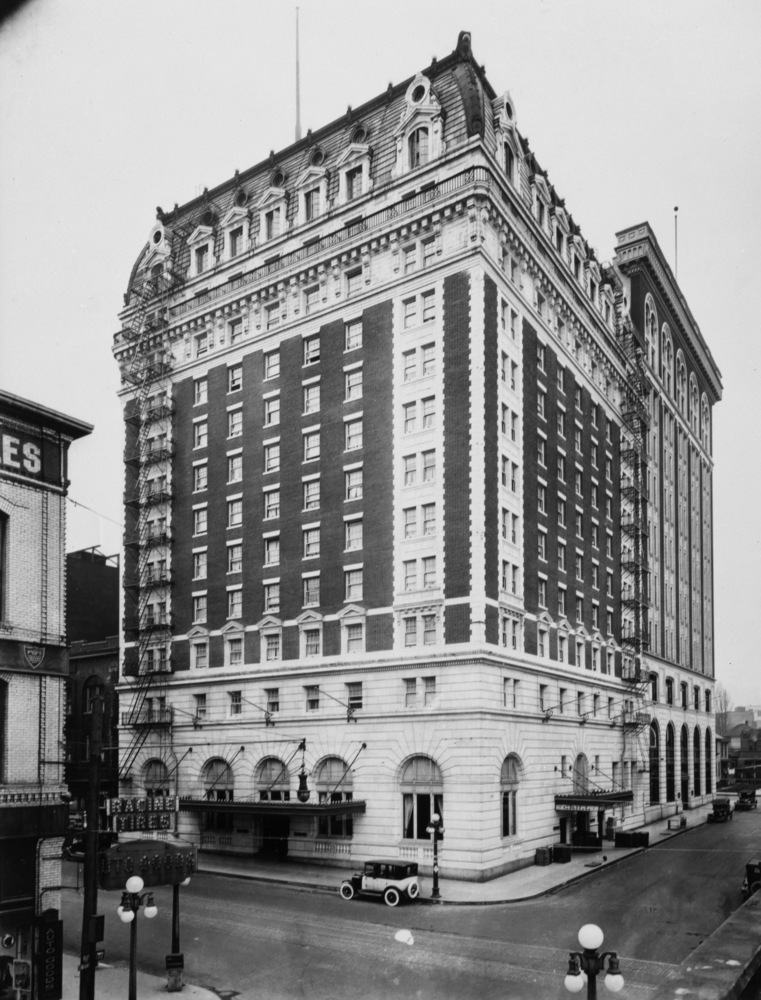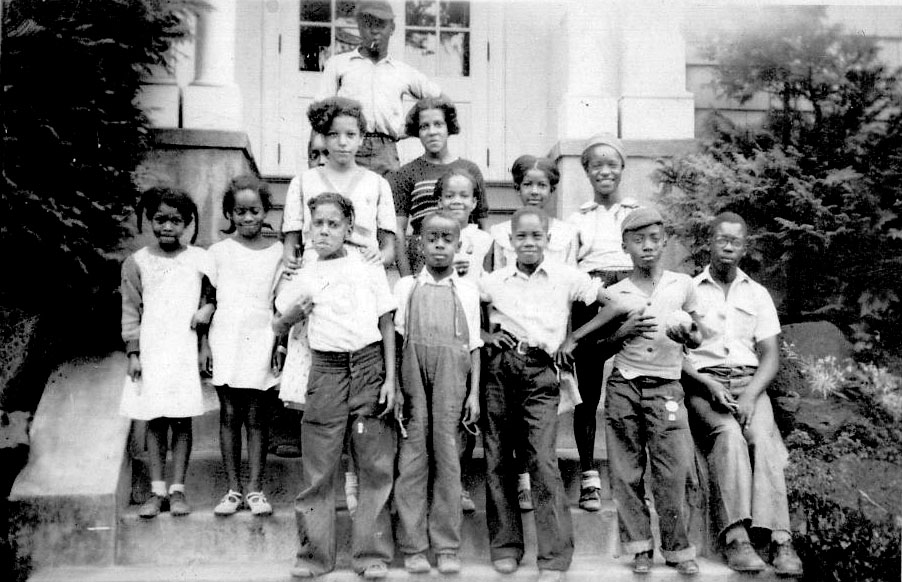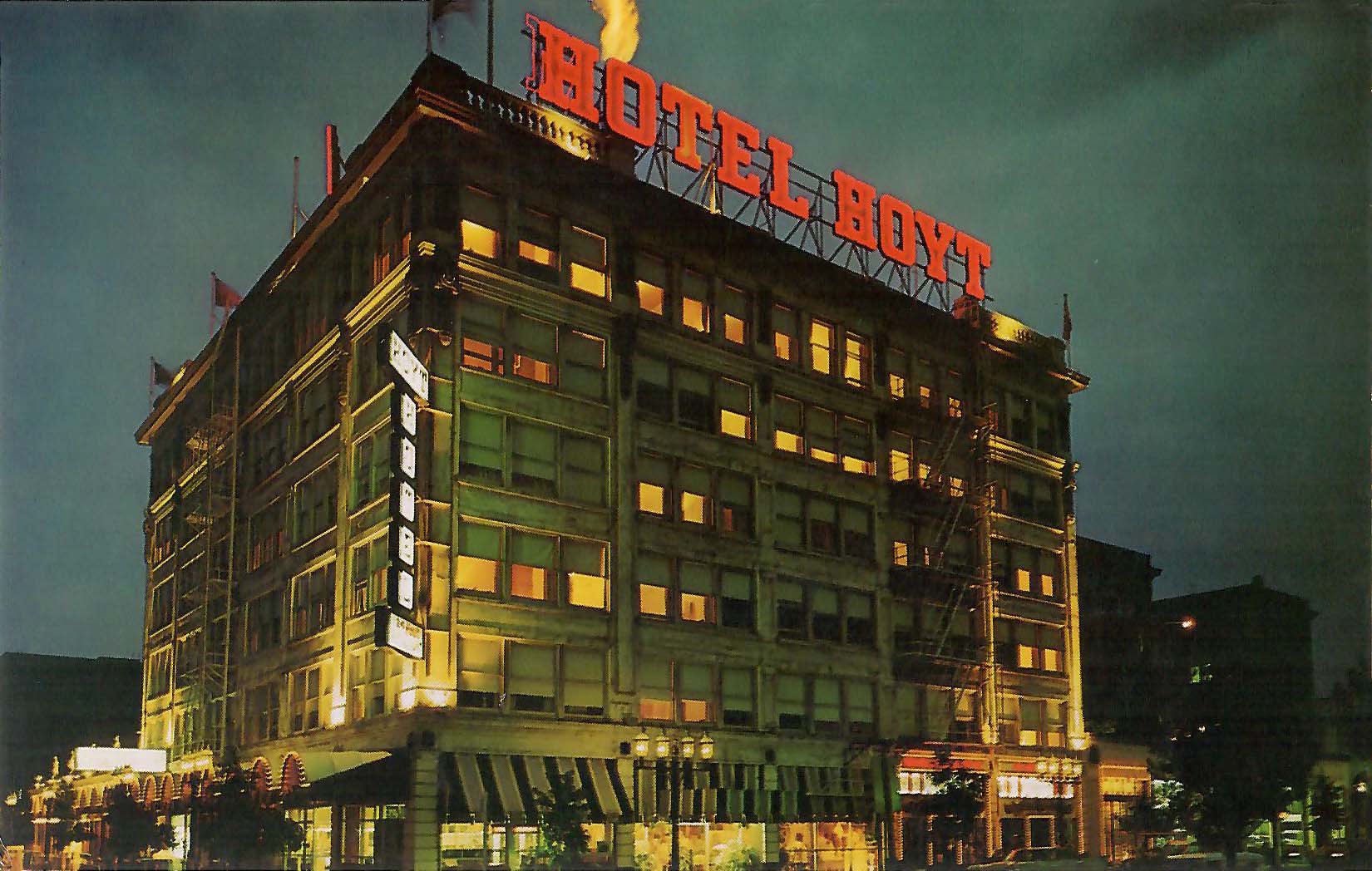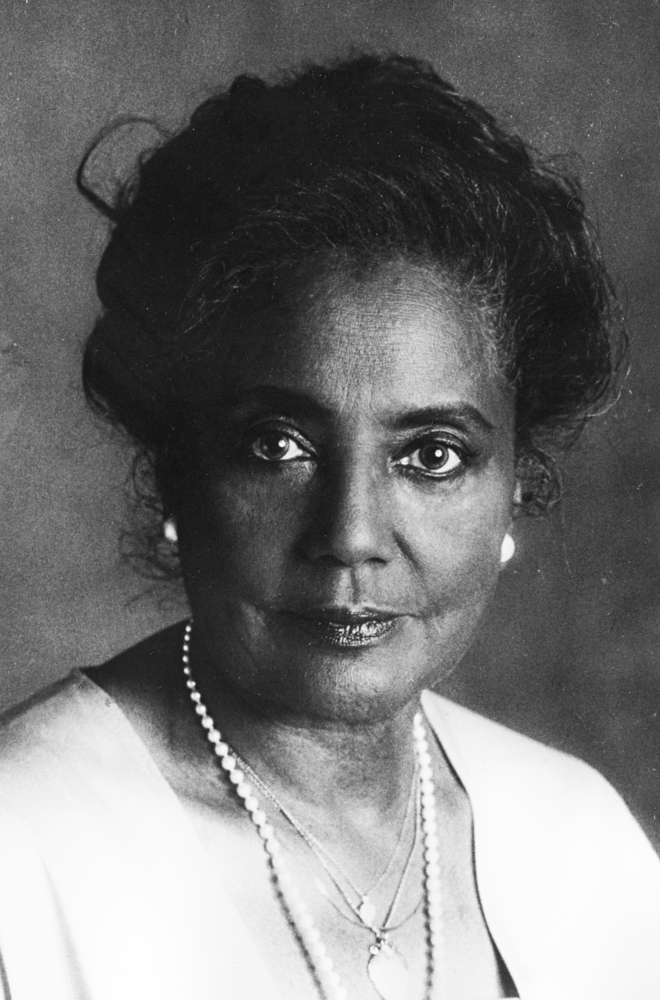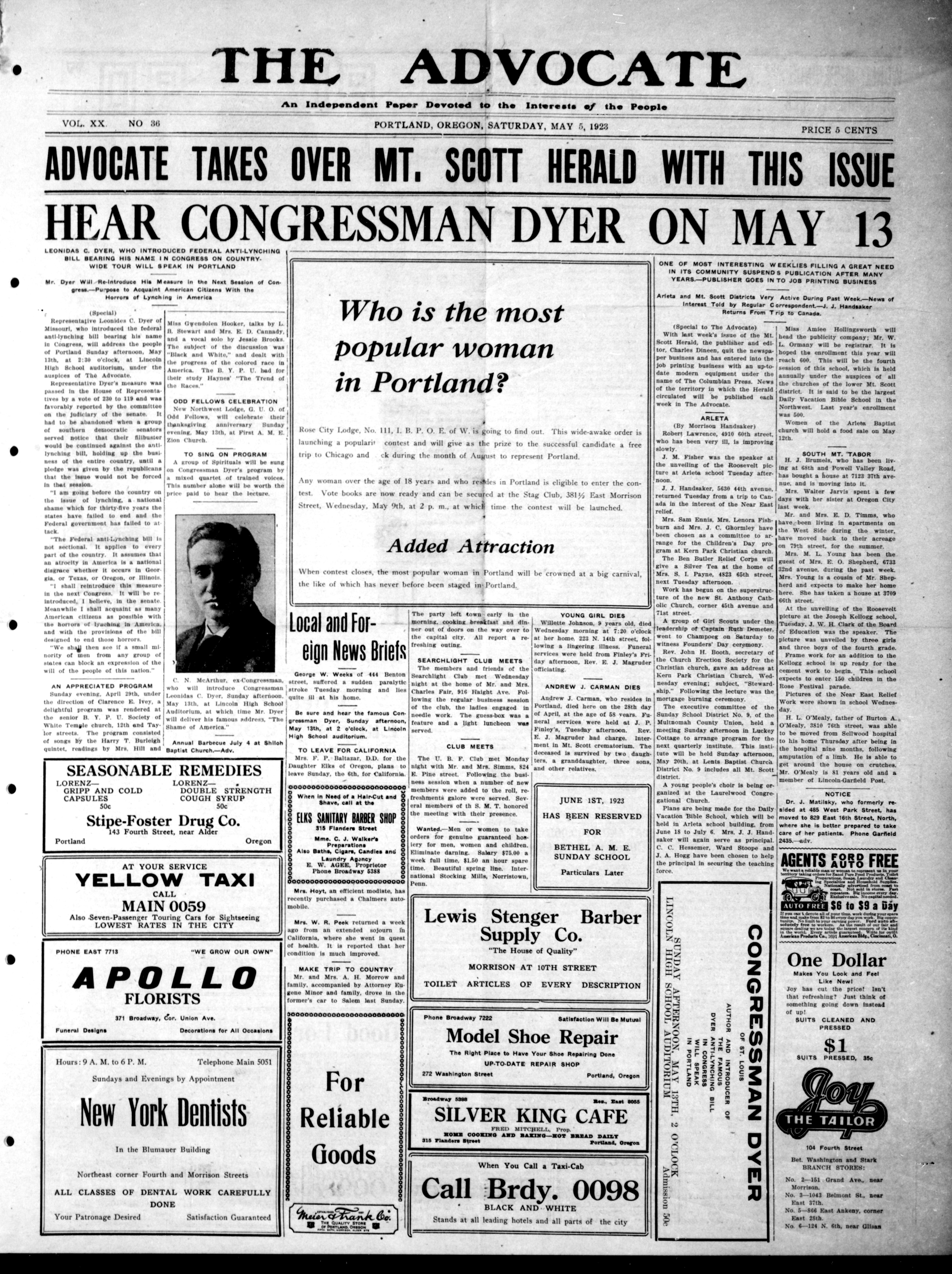The Golden West Hotel, located at Northwest Broadway and Everett Streets in Portland, was the first hotel in the city to accommodate African American patrons. For twenty-five years, from 1906 through 1931, it was a social center and a focal point of the Black community, a place for African Americans of all ages to gather and socialize in a segregated and largely unfriendly city. On the lower floors of the hotel, there were several Black-owned businesses, including a bar, a barbershop, an ice cream parlor, and an athletic club.
The arrival of the railroads in the early 1880s and the opening of the Portland Hotel in 1890, which employed seventy-five African Americans in service positions, had laid the foundation for the growth of a Black middle class in the city. At the turn of the twentieth century, Oregon’s Black population stood at only 1,105, with 70 percent in Portland. During this period, Black-owned businesses in the city included the Golden West; the Advocate, a weekly newspaper; the Enterprise Investment Company; the first Black law and medical practices; and numerous small shops and businesses. Portland was still a racist city, where segregation was the norm, but the small Black community in the northwest district nevertheless managed to carve out a self-sufficient world. The Golden West was an important part of that world.
Entrepreneur William Duncan Allen bought the property in 1905 and opened the 100-room Golden West a year later to provide accommodations for those who worked for the railroads as porters, cooks, and waiters, the primary source of employment for Black men in Portland. None of the city’s hotels allowed African American patrons, so the Golden West was a necessity for traveling railroad workers.
Allen had moved to Portland in 1901 from his birthplace in Nashville, Tennessee; he and his wife Lillian Medley had close ties to the city’s Black community for decades. Although a few African Americans, including Allen, lived in rapidly growing East Portland, most rented property in the northwest neighborhood, near the Golden West. The hotel was sandwiched between two of the most important Black churches in the area, the Bethel AME Church and the Mount Olivet Baptist Church.
The Golden West’s location at the center of the Black neighborhood put the hotel in a position of social as well as economic importance. Kathryn Hall Bogle, whose father Richard Hall Bogle Sr. owned the Golden West Hotel Barbershop, later remembered Sundays in the neighborhood: “After church...we would go up to the hotel in order to have our dinner. Often they were swamped with customers all of a sudden every Sunday. So we utilized that time by visiting more with other people who had come out of other churches. There was a great swapping of...laughter, plans for the coming week, just a general get-together, socializing.”
The Golden West hosted activities that ranged from after-church gatherings to a gambling den in the basement. Freddie Keppard’s Original Creole Orchestra performed there in 1914, in what might have been the first performance of jazz in Portland. The hotel also welcomed Black entertainers and politicians, including civil rights activist A. Philip Randolph. The Golden West was a pillar of African American life, a space owned by a community that did not own much.
The closure of the Golden West in 1931 was a consequence of the Great Depression. When railroad workers lost their jobs during the Depression, many Black businesses that had relied on their patronage could not survive. Allen sold the building when he closed the hotel, and in 1933 it was bought by Catharine Byrd, who reopened it as the New Golden West Hotel. She closed the hotel and sold the building in 1935. The property changed hands several times until 1943, when it became the Broadmoor Hotel, a low-cost housing development that existed until 1984.
In the twenty-first century, the Golden West still functions as low-income housing, now under its original name. The hotel was placed on the National Register of Historic Places on February 22, 2022. The quarter-century of the original Golden West stands as a reminder of a time in Portland when a Black middle class and a vibrant, tightly knit culture thrived in a city weighed down by racism.
-
![Golden West Hotel on NW Everett St., Portland]()
Golden West Hotel, Portland.
Golden West Hotel on NW Everett St., Portland Courtesy Oreg. Hist. Soc. Research Library, 023148
-
![Golden West Hotel, soda fountain]()
Golden West Hotel, soda fountain.
Golden West Hotel, soda fountain Courtesy Oreg. Hist. Soc. Research Library, 29269
-
![]()
Golden West Hotel guest calendar, 1911.
Oregon Historical Society Museum, 90-10
Related Entries
-
![Baldwin Hotel]()
Baldwin Hotel
In 1907, George Baldwin opened the Baldwin Hotel in Klamath Falls, whic…
-
![Benson Hotel]()
Benson Hotel
The Benson Hotel, built in Portland by pioneer lumberman Simon Benson i…
-
![Black People in Oregon]()
Black People in Oregon
Periodically, newspaper or magazine articles appear proclaiming amazeme…
-
![Hoyt Hotel]()
Hoyt Hotel
Opened in May 1912 to serve the traveling public and capitalize on Port…
-
![Kathryn Hall Bogle (1906 - 2003)]()
Kathryn Hall Bogle (1906 - 2003)
A freelance journalist, social worker, and community activist, Kathryn …
-
![Portland Hotel]()
Portland Hotel
The Portland Hotel (originally called the Hotel Portland), a project in…
-
![The Advocate]()
The Advocate
From 1903 until about 1938, the Advocate recorded incidents of racism a…
Related Historical Records
Map This on the Oregon History WayFinder
The Oregon History Wayfinder is an interactive map that identifies significant places, people, and events in Oregon history.
Further Reading
McLagan, Elizabeth. A Peculiar Paradise: A History of Blacks in Oregon, 1788-1940. Portland, Ore: The Georgian Press, 1980.
"The Golden West Hotel." Portland Central City Concern.
Toll, William. "Black Families and Migration to a Multiracial Society: Portland, Oregon
1900-1924." Journal of American Ethnic History 17.3 (Spring 1998): pp. 38-70.

